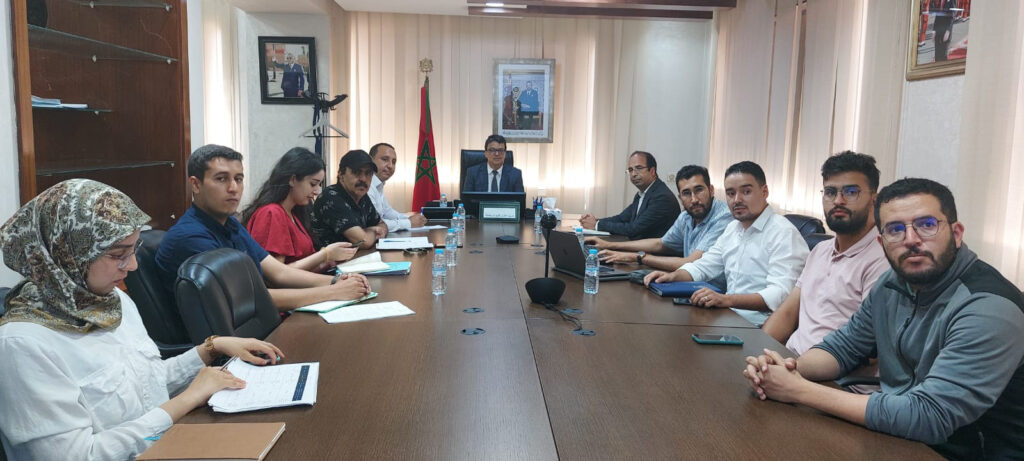Will doctors and medical professionals want to use a new scheduling solution?
Local authority: Rehamna Province
Country: Morocco
As Rehamna Province expands and grows, it wants to reduce the social gap in the old city of Benguerir, focusing specifically on the health gap. Citizens currently have access to a national solution to make appointments, but it’s not very well known and hard to access. It also does not enable them to know if appointments have been cancelled or shifted. Instead, citizens go to the hospital in person to make appointments, facing long queues and leading to a lack in efficiency and quality of care.
The Local Action Plan wants to build on the national digital application to help citizens find the nearest clinic, make appointments and remind them of consultations. A key feature of the proposed solution is the use of volunteers as community relays, which will help it reach citizens with low digital literacy.
The focus of experimentation was to evaluate the current application and booking system with citizens and healthcare staff, and share a “paper prototype” before testing a “version 0” of the new system with healthcare professionals. Finally, the team wanted to test the set-up, coordination and willingness of the “community relays’’ to take part.
ASSUMPTIONS:
• The solution will be used by healthcare workers (nurses, doctors, back-office) and citizens in a way that meets their requirements
• Marginalised citizens will be willing to use “community relays” to make medical appointments
How the Local Action Group tested it
• Selected and identified a partner to develop the technical solution
• Ran a survey with citizens to understand their knowledge, usage and evaluation of the existing healthcare appointment solution
• Co-designed the specifications of the solution with members from the healthcare workers’ and patients’ associations.
• The “paper version” of the application was demonstrated to doctors, nurses, representatives of doctors and citizen’s associations, the Governor of the Province and the Provincial Director of the Ministry of Public Health
• Surveyed citizens to explore the idea of “community relays” and their willingness to engage with them
What they learned
While there was excitement about the potential of the solution, healthcare workers wanted to see its impact before validating it. Healthcare workers who fed into the design of the specifications and feedback on the “paper prototype” were engaged and offered key feedback. However, there was a reluctance to give a “green light” without seeing the real impact of the application to meet the needs of the healthcare actors in practice.
Inaccessible digital solutions lead citizens to avoid it. When asked about the existing appointment solution, 65% of interviewees shared that they knew of the existing appointment solution, but had never used it independently. This led a majority of interviewees to skip the solution and make appointments in-person at the hospital.
Overall, citizens say that they would trust and rely on community relays, specifically if they have a certain profile. The important role of the community relay was also affirmed by participants, who insisted on the need to set up a network of proximity agents to allow this application to be inclusive, especially for senior citizens who do not master digital tools. Citizens shared that they’d prefer community relays to be young and perceived as tech (rather than health) savvy.

Was the assumption validated?
Unclear The team learned that:
• While the local authority received good feedback about the solution at this early stage, it is still unclear how it will work in practice and thus improve the experience of both healthcare professionals and their patients. The experience of launching a similar application in the past can act as a reminder of engagement and enthusiasm not translating into people actually using and valuing a digital tool.
• While citizens have spoken about their willingness to engage with a community relay, their true behaviour still has to be observed. In addition, there is no evidence yet that there are willing volunteers who’d be able to play this role.
What next?
For Benguerir, the next stage will be a pilot phase to test the solution with real users. A key question of this next round is: what is the added value of this application, particularly compared to the existing one?
This pilot phase will also be crucial to build concrete evidence of how doctors and citizens might use and value the solution in the long term.



